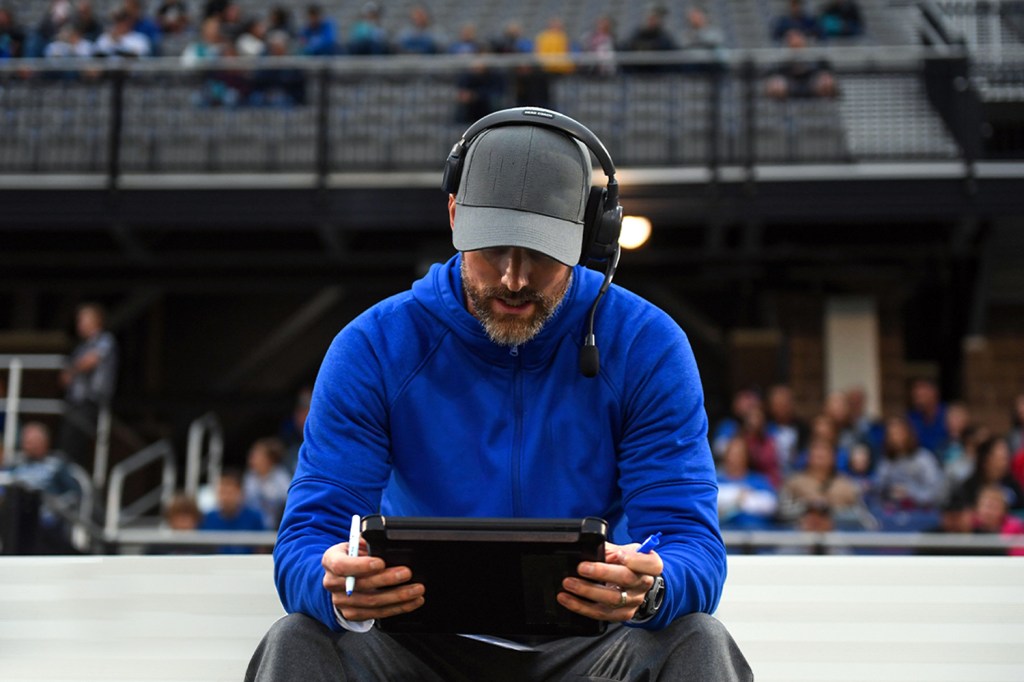Reports This Month
- The Continued Growth of Pickleball
- Retail: State of the Supply Chain
- Key Highlights from Tech Developer Conferences
- Esports Increasing Global Reach
One Big Thing
Sports betting sponsorships might soon be a thing of the past for English Premier League teams.
Recently, the EPL asked many of its biggest clubs to begin phasing out sports betting sponsors in an attempt to help the U.K. government curb what it deems as gambling addiction and “other gambling-related issues.”
British regulators are planning to decide on a potential shirt sponsor ban by July 21. Sky News reported last week that the league had approached the government with a compromise to stave off anticipated reforms.
This involved a gradual phasing out of front-of-shirt sponsorship over the next few years, allowing contracts to run their course.
In an effort to ward off legislation, the Premier League is asking clubs to agree to a voluntary ban on new gambling shirt sponsor deals.
- Premier League clubs will vote on phasing out existing gambling shirt sponsors — 14 of the league’s 20 teams are required for the measure to pass.
- Under the proposal, clubs would end any existing shirt deals within three years.
- Gambling in the U.K. exploded after the 2005 Gambling Act, with nearly 50% of adults in the U.K. actively engaging in legalized sports gambling.
Last season, 10 teams in the Premier League had gambling companies as sponsors on their shirts.
Why is the Government Pushing for Legislation?
The U.K. isn’t looking to simply ban jersey sponsorships, either. They are considering sweeping updates to 17-year-old gambling laws to combat addiction and other gambling-related issues.
The changes related to the Gambling Act left all forms of gambling in England, Wales, and Scotland regulated, with the main change being that it transferred the authority for licensed gambling from the magistrates’ court (equivalent to a federal level of legislation) to local authorities, leading to a huge increase in gambling activities, ads, and marketing campaigns. Soccer was no exception.
This exacerbated some larger issues. In September 2021, the British government issued a press release outlining the severe economic costs that gambling was placing on society. The report indicated that $1.53 billion has been lost, in large part due to gambling-related suicide and homelessness.
The review found a clear link between higher levels of alcohol consumption and harmful gambling, with only 35.4% of non-drinkers participating in gambling compared to 74.4% of those consuming over 50 units of alcohol per week (equivalent to 16 pints of beer or large glasses of wine).
All in all, the prospects for sports betting sponsorships in British football are not looking great. While the six largest EPL teams do not have existing deals in place, smaller English clubs are already bracing for a loss of revenue. The second-tier English Football League, whose title sponsor is Sky Bet, said its clubs would lose $47.8 million per year.
Betting companies are looking to get ahead of the curve. The four biggest gambling companies, Entain, Flutter, William Hill, and Bet365, have pledged to pay 1% of their gross gambling yield — which are the retained revenues after payment of winnings — for gambling prevention and treatment initiatives by 2024, but many firms make limited donations.
Among the reported changes under consideration are a betting limit on online casinos of $2.40 to $6 per wager, bans on games that allow users to lose lots of money very quickly, and a ban on free bets.
U.S. Markets
The U.S. has been dealing with its own issues unrelated to sports betting. For months, sports betting stocks have tested 52-week lows, as the combination of continued inflation and long-term concerns on profitability have dragged stocks down as much as 80% from last year’s highs.
Experts, however, seem to believe that the sports betting business as a whole should be able to weather the current economic storm. DraftKings CEO Jason Robins recently indicated that he wasn’t concerned about the continued lackluster performance of gambling stocks.
“Gaming has generally been performing very well during economic downturns, recessions, and inflationary periods,” Robins said. “This is not a new thing. This is something that’s been well known about the industry for quite some time. We’re certainly seeing the same thing materialize in our numbers.”
The three companies, BetMGM, DraftKings, and FanDuel, comprise 70% of the U.S. market share for legal sports gambling. Despite their market leadership, the companies haven’t seen that dominance translates to stock gains.
Last month, all three companies slumped more than 14%, extending losses over the first six months of 2022. The three heavyweights are down considerably in 2022.
While the relatively “young” U.S. betting market continues to figure out how to reach profitability, it is important to consider the potential issues that could come down the line. The U.K. is struggling with the second-order impacts of legalized sports betting and the costs borne by society.
It’s food for thought: Negative byproducts could really change the economics for U.S. operators and their relationships with sports properties.

